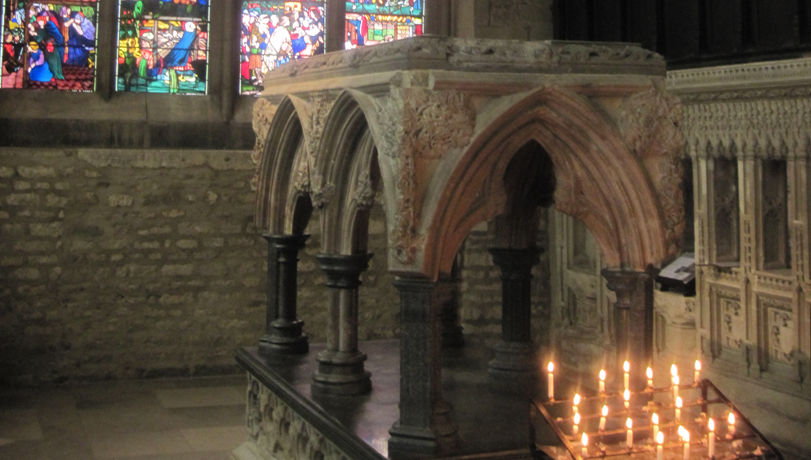 |
| William Laud, Archbishop of Canterbury. |
In his visits to the English and Welsh dioceses as Archbishop, Laud noted the extreme poverty of the majority of parish priests, who could "barely clothe or feed themselves." Laud made more enemies, especially in the House of Lords, when he suggested that some of the Church Lands confiscated under Henry VIII be returned for the livings of priests. While Archbishop, Laud increased his political involvement through his friendship with Charles I, King and Martyr, and though he had no ecclesiastical jurisdiction in Scotland, where episcopacy had been abandoned and replaced with Calvinist Presbyterianism, had great influence on the re-establishment of the Church in that land. The bishops had returned to Scotland under James I soon after his ascension in 1603 but it was Laud who supervised much of the revision of Scotland's liturgy. In 1637 he and the Archbishop of St. Andrews made the Prayer Book of 1637 official. The book was very Anglican and Catholic in its liturgy and was completely rejected by the Scots in the Bishops War-which soon became the Civil War.Though he was a high churchman, however, he was not a Papist. He refused a seat in the College of Cardinals twice saying that first Rome would have to reform itself. Never-the-less, Laud was captured in 1641 and charged with High Treason and other ridiculous charges by the severely Puritan House of Commons and the House of Lords, offended by his proposition about the return of Church lands, and imprisoned in the Tower of London. He was formally tried in 1644 and sentenced to death though Charles tried to pardon him. Among the evidence presented against him was that he used incense an unleavened "host" in the celebration of the Holy Communion. He was martyred for the protection of the Church on this day, 10 January, 1645 praying "The Lord receive my soul, and have mercy on me, and bless this kingdom with peace and charity, that there may not be this effusion of Christian blood amongst them."
 |
| Trial of William Laud before Parliament. |
Today, William Laud's passion reminds us of the importance of the orthodox structure and doctrines of the Anglican Church. The structure of the Church, its apostolic bishops and its sacraments are a direct and historic connection to Christ and should be revered this way. There is a sort of "Puritan" faction in some Churches of today's Communion which insists on the redundancy of structural or doctrinal commitments and instead reinforces simply Christian principals or ethics. Christianity, however is like an arch: Christ, who is the Church, is the keystone and so without him the arch falls away. The Church and her headers need to recognize and revive in focus that faith which is her heart. Though there are many people who want it to become a merely a secular, social, humanist force rather the force of love which comes directly from Christ and from all those who love him. William Laud stands for the persistence of those who live and breath Christ in faith against forces that want to turn it into an instrument for shifting popular demands. Now, when the Church is again being challenged, bishops and priests and laypeople should be willing to be persecuted like Laud because they recognize and support the importance of the orthodox faith and the Church's connection to its ancestors, saints, apostles and to Christ through episcopacy and the sacraments.
Collect (From the Episcopal Church):
Keep us, O Lord, constant in faith and zealous in witness, that, like thy servant William Laud, we may live in thy fear, die in thy favor, and rest in thy peace; for the sake of Jesus Christ thy Son our Lord, who liveth and reigneth with thee and the Holy Spirit, one God, for ever and ever.


Holy St. William Laud, who didst bear the passion of martyrdom for the sake of Christ's church in England, may we by thy example persevere in the face of adversity, to His glory. Pray unto God for us oh holy saint of God, that our souls may be saved.
ReplyDelete